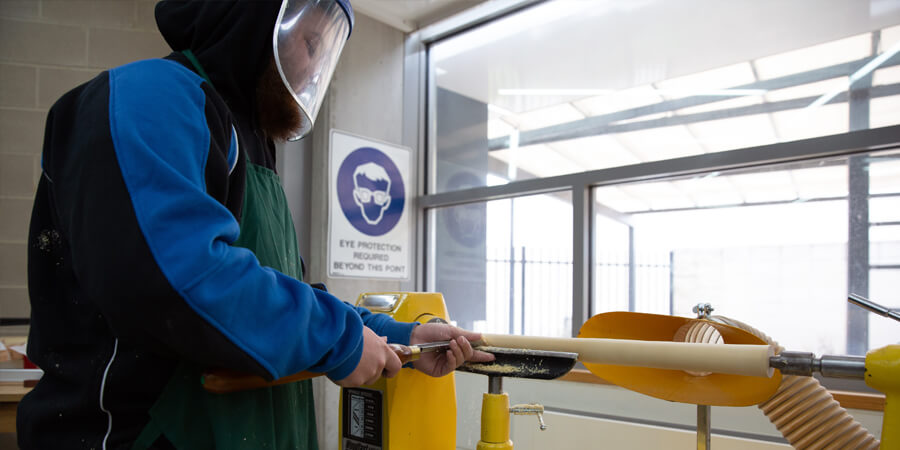
Course information
This course provides students with knowledge, understanding and skills relating to areas of work inside the industry & services domains of constructing timber products. In broad terms, students learn about industry practices, processes, procedures and concepts such as technical information, materials, sustainability, equipment and work health & safety (WHS). Students learn to analyse, problem-solve, make decisions and develop interpersonal and intrapersonal skills suitable for employment and further training.
In Timber Products students learn to use tools and timber materials to create products. They learn skills that are useful life-long or as a transition to employment or further education. This course is a preferred option for students who want to create timber projects without the requirement to meet industry competencies associated with our Furniture Making course. Having fun and working with your hands to create projects with your own design influence is central to this course.
These units contain significant content that overlaps with content in other BSSS accredited courses: Furniture Making A/V.
Post-school pathways
Do you enjoy or are you good at Industrial Arts? (pdf, 110kb)
Course pattern
Available as a Minor or Major
Suggested Minor course
Semester | Unit |
|---|---|
1 | Working with Timber |
2 | Techniques in Timber Manufacture |
Suggested Major course
Semester | Unit |
|---|---|
1 | Working with Timber |
2 | Techniques in Timber Manufacture |
3 | Creating to a Design Brief or Plan |
4 | Timber Project |
Unit descriptions
Working with Timber
This unit is designed to familiarise students with workshop procedures using timber. Students learn the fundamentals of working safely with timber products, using and naming selected tools and materials correctly. Students learn to use selected hand and power tools, and machinery, make joints and follow a given design to complete the projects undertaken in this unit. They learn communication skills such as following instructions, seeking help and recording processes as well as strategies to solve problems.
Techniques in Timber Manufacture
This unit is designed to develop skills in the workshop using timber and other materials. Students learn the fundamentals of workshop safety requirements, including attitudes and behaviours. They learn techniques for the manufacture and use of jigs, as well as tool maintenance for both power and hand tools. Students make decisions about appropriate jointing techniques according to the product. They learn communication skills such as reading plans and drawings, measurement and scale, as well as the reasons for selecting particular materials for a given task
Creating to a Design Brief or Plan
This unit focuses on sustainable workshop practices and procedures, including interpretation of plans and the concept of the design brief and the design process. They explore the nature and properties of materials to fulfil a design brief. Students learn about the selection of appropriate materials and calculate the cost of production, including the whole manufacturing process. They learn communication skills such as actively listening, and reflecting on and implementing feedback from clients.
Timber Project
In this unit students create a project of their own design, or modify an existing design, to meet a particular need. Using a project timeline, students learn to manage the entire construction of a project, from conception to delivery. They consider the choice of appropriate materials, finishes and techniques, in accordance with the project requirements, proactively managing risks associated with constructing the product in the workshop. They learn communication skills such as maintaining an ongoing record of evaluation of production processes and techniques.
Independent Study
An Independent Study unit has an important place in senior secondary courses. It is a valuable pedagogical approach that empowers students to make decisions about their own learning. An Independent Study unit can be proposed by an individual student for their own independent study and negotiated with their teacher. The program of learning for an Independent Study unit must meet the unit goals and content descriptions as they appear in the course. Students must have studied a minimum of three standard 1.0 units from this course.
